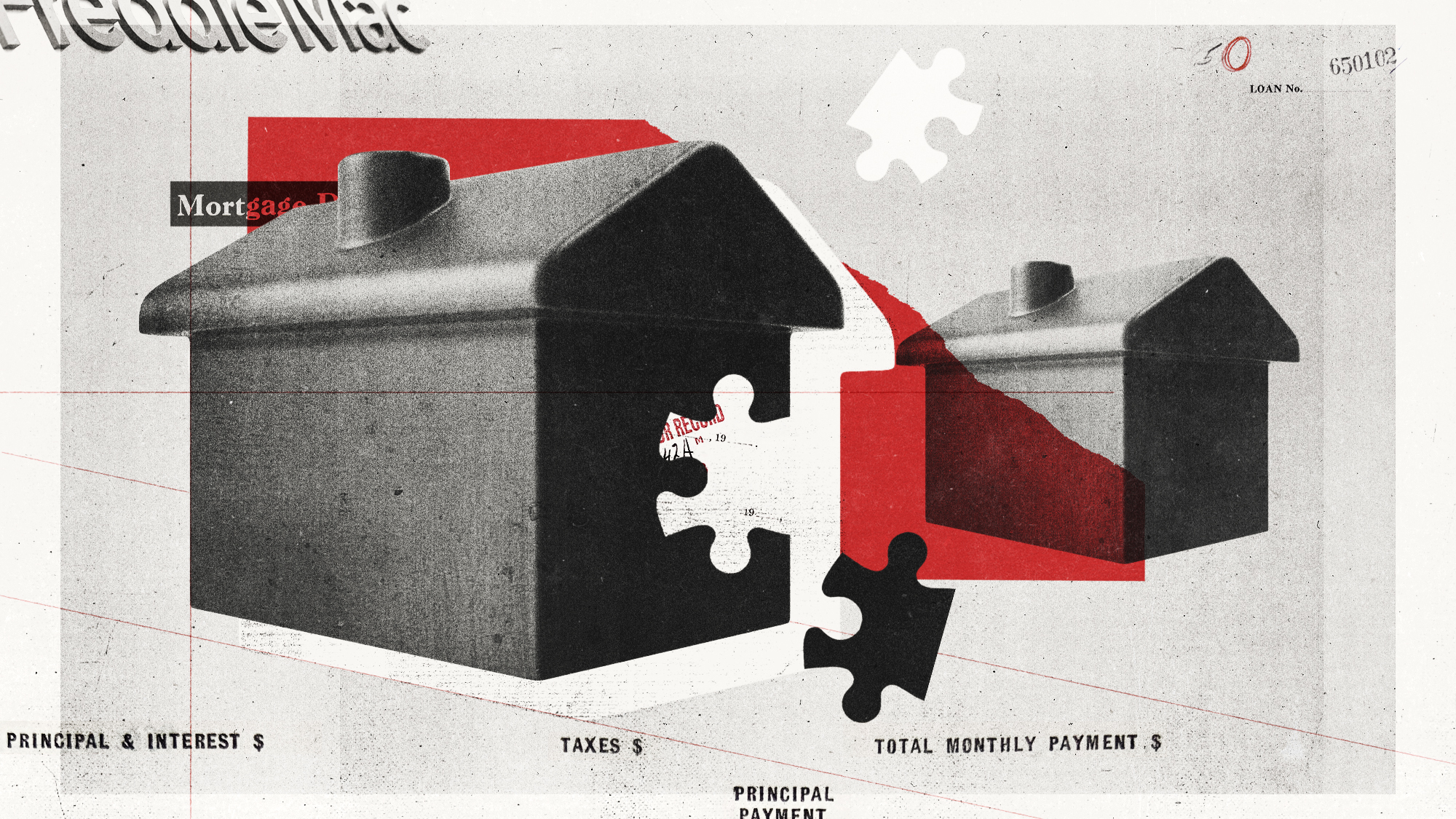Fannie Mae and Freddie Mac helped trigger the Great Recession. Would an IPO create new dangers?
It depends on the 'implicit guarantee'


A free daily email with the biggest news stories of the day – and the best features from TheWeek.com
You are now subscribed
Your newsletter sign-up was successful
Fannie Mae and Freddie Mac have been under government control since 2008, when their losses on the collapsing housing market helped trigger the Great Recession. President Donald Trump now wants to sell stock in them with an initial public offering.
Trump and senior members of his administration "met with executives from the nation's largest banks in recent weeks" to discuss the potential IPO, said The New York Times. The two corporations are collectively a "linchpin of the $12 trillion mortgage market," making the existence of 30-year mortgages possible. It is unclear, though, if there is "much investor appetite" for shares in the firms. How and why would privatization work?
What are Fannie Mae and Freddie Mac?
The companies "don't issue mortgages to borrowers," but they do "ensure America's housing market functions properly," said CNN. They buy mortgages from lenders and resell them as packaged bonds to investors, "helping money flow in and out of the housing market." That "frees up capital and allows lenders to make more mortgages available," said Politico. They play an important role, as the companies are estimated to "stand behind more than 60% of the mortgage market."
The Week
Escape your echo chamber. Get the facts behind the news, plus analysis from multiple perspectives.

Sign up for The Week's Free Newsletters
From our morning news briefing to a weekly Good News Newsletter, get the best of The Week delivered directly to your inbox.
From our morning news briefing to a weekly Good News Newsletter, get the best of The Week delivered directly to your inbox.
What was their role in the Great Recession?
The companies "guarantee bond investors that they will be made whole" if too many homebuyers default on their mortgages, said the Times. In 2008, the private investors backing Fannie Mae and Freddie Mac "panicked as more and more homeowners defaulted on their mortgages." The two companies soon jointly entered a government conservatorship that included a "taxpayer-funded $187 billion bailout to prevent the firms from filing for bankruptcy."
Why is there IPO talk?
The Trump administration believes the offering "could raise around $30 billion," said The Wall Street Journal. Proponents argue the IPO "could reduce the country's deficit and return money to taxpayers" but there are questions about the "impact on government finances." The offering could also be a "windfall" for investors like billionaire Bill Ackman "who bought shares years ago" expecting an eventual government sale.
How would privatization work?
That is still unclear. "This would be a complex deal," said Axios. A lot of important details still need to be worked out, "including whether the companies would remain under government conservatorship."
What are the criticisms?
The investors who buy Fannie Mae and Freddie Mac bonds believe the government conservatorship offers an "implicit guarantee" that they will recoup their investments even if there is another housing market collapse, said Jim Parrott and Mark Zandi in a brief for Moody's Analytics. The IPO could put the guarantee "back in play," which could make those investors skittish and lead to a "less liquid, less stable and much more cyclical housing finance system" with higher lending costs. That would be a problem during the "worst housing affordability crisis in a generation." Trump's response to those concerns: The government "will keep its implicit GUARANTEES," he said in a Truth Social post.
A free daily email with the biggest news stories of the day – and the best features from TheWeek.com
What next?
The IPO could take place "later this year," said Politico.
Joel Mathis is a writer with 30 years of newspaper and online journalism experience. His work also regularly appears in National Geographic and The Kansas City Star. His awards include best online commentary at the Online News Association and (twice) at the City and Regional Magazine Association.
